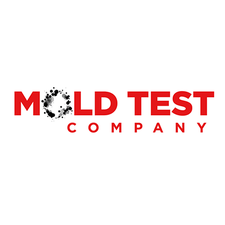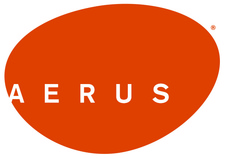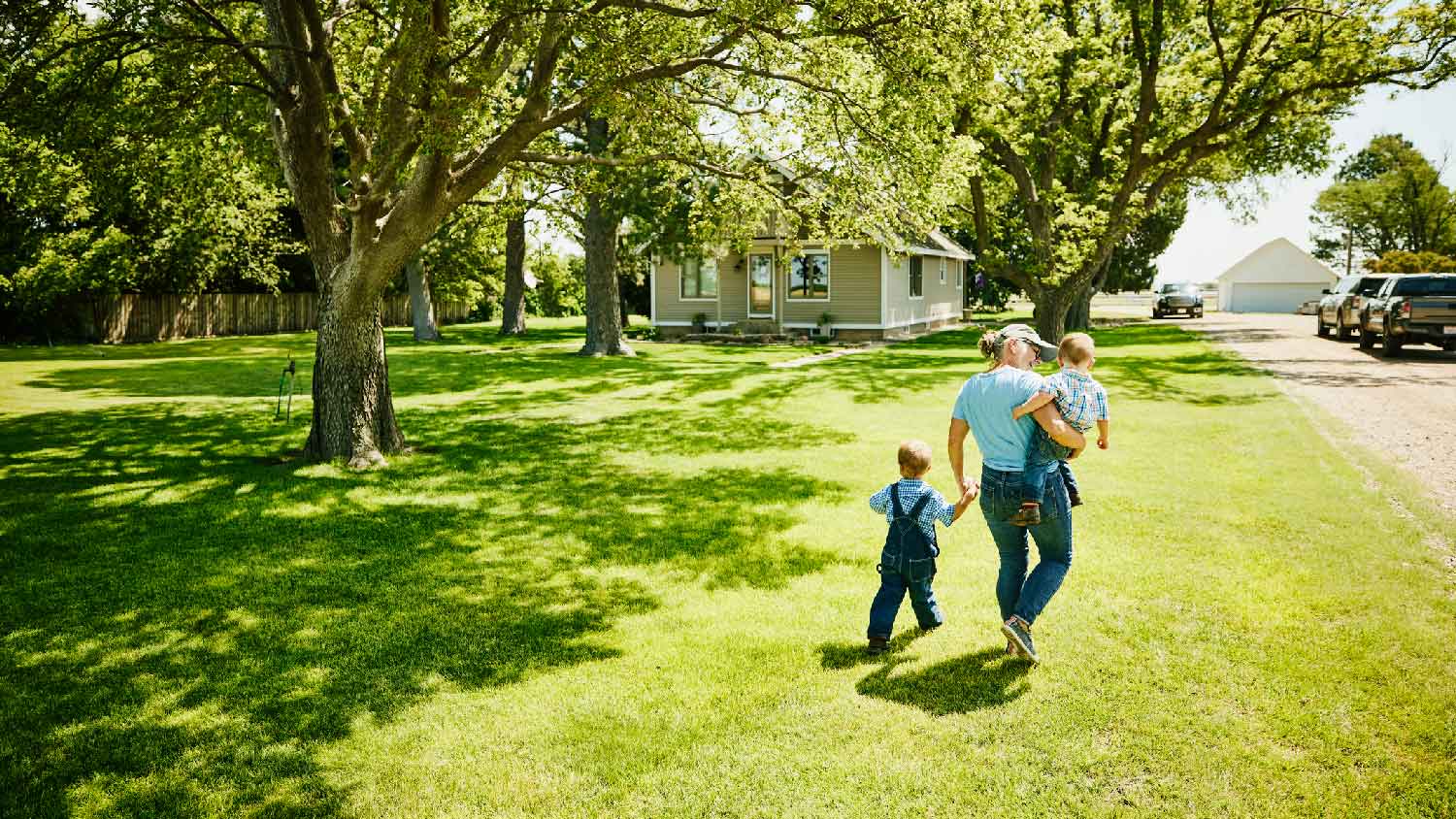
Get matched with top biohazard remediation specialists in Lincoln, ME
There are 0 highly-rated local biohazard remediation specialists.
Matching on Angi


Biohazard remediation specialists in Lincoln

At Mold Test Company North East, we take great pride our experience, expertise, quality and customer service that we provide to meet the consumers needs. It is our mission to provide excellent workmanship and complete customer satisfaction from start to completion of a project. order to understand the needs and expectations of our customers, we take great care to work and communicate with every customer a professional manner. Our reputation is based on service, safety and quality, regardless of how large or small the job.
"When I called the mold company for my lab results. They gave me a person named Ricardo Echeverria, Senior Mold Analyst to call for the results. He verbally told me that the cause was something like a remodel, construction going on. There was a red flag for a VOC called Methylene Chloride--Banned outdated paint. I sent Ricardo and email asking if I can have a report of what he said in writing. I only received a contaminants list. I said, I am not a scientist and do not understand the lab results.I never received a response back from him. I called Jeremiah Bancroft a few times and asked for a written explanation of the causes. He could not supply me with a written explanation because it was a legal issue. I asked for his help. I need your help. Jeremiah said, go to your primary care for a doctors note. That was the last time I spoke to him on September 19, 2024"
Stephanie B on October 2024
At Mold Test Company North East, we take great pride our experience, expertise, quality and customer service that we provide to meet the consumers needs. It is our mission to provide excellent workmanship and complete customer satisfaction from start to completion of a project. order to understand the needs and expectations of our customers, we take great care to work and communicate with every customer a professional manner. Our reputation is based on service, safety and quality, regardless of how large or small the job.
"When I called the mold company for my lab results. They gave me a person named Ricardo Echeverria, Senior Mold Analyst to call for the results. He verbally told me that the cause was something like a remodel, construction going on. There was a red flag for a VOC called Methylene Chloride--Banned outdated paint. I sent Ricardo and email asking if I can have a report of what he said in writing. I only received a contaminants list. I said, I am not a scientist and do not understand the lab results.I never received a response back from him. I called Jeremiah Bancroft a few times and asked for a written explanation of the causes. He could not supply me with a written explanation because it was a legal issue. I asked for his help. I need your help. Jeremiah said, go to your primary care for a doctors note. That was the last time I spoke to him on September 19, 2024"
Stephanie B on October 2024

We are veteran owned, and local company. We have over 95 years of industry experience. We specialize in water treatment, air purification, floor-surface care, and basement smell remediation. We pride ourselves on the quality of our work, as well as our commitment to outstanding results. We look forward to building lasting relationships, and guarantee your satisfaction! We offer Free Water and Air Quality Testing. We also offer mold testing at a charge. We specialize in ActivePure technology by NASA. ActivePure has been proven to kill RNA, and DNA viruses. Such as H1N1 Swine Flu, Avian Bird Flu, and many other pathogens, on surfaces, and in the air. Book your free in home consultation. Or if you prefer we can setup a personal Zoom call via computer.
"Hasnâ  t done it yet."
Eve D on July 2023
We are veteran owned, and local company. We have over 95 years of industry experience. We specialize in water treatment, air purification, floor-surface care, and basement smell remediation. We pride ourselves on the quality of our work, as well as our commitment to outstanding results. We look forward to building lasting relationships, and guarantee your satisfaction! We offer Free Water and Air Quality Testing. We also offer mold testing at a charge. We specialize in ActivePure technology by NASA. ActivePure has been proven to kill RNA, and DNA viruses. Such as H1N1 Swine Flu, Avian Bird Flu, and many other pathogens, on surfaces, and in the air. Book your free in home consultation. Or if you prefer we can setup a personal Zoom call via computer.
"Hasnâ  t done it yet."
Eve D on July 2023
REAL ESTATE HOME INSPECTIONS RESIDENTIAL - COMMERCIAL BUILDING INSPECTIONS ENVIRONMENTAL INSPECTIONS & TESTING MOLD, RADON, FORMALDEHYDE METH LAB EVALUATION and TESTING THIRD PARTY CODE ENFORCEMENT INSPECTORS Our inspectors hold engineering degrees and are certified by the State of Maine in Building Codes and hold numerous Professional Certifications
REAL ESTATE HOME INSPECTIONS RESIDENTIAL - COMMERCIAL BUILDING INSPECTIONS ENVIRONMENTAL INSPECTIONS & TESTING MOLD, RADON, FORMALDEHYDE METH LAB EVALUATION and TESTING THIRD PARTY CODE ENFORCEMENT INSPECTORS Our inspectors hold engineering degrees and are certified by the State of Maine in Building Codes and hold numerous Professional Certifications
INSULATION services (Installation or Repair). Save on your energy costs! Sprayed Urethane Foam. From new construction (commercial or residential) buildings to basements, crawl spaces, garages or basement repair...we do it all.
INSULATION services (Installation or Repair). Save on your energy costs! Sprayed Urethane Foam. From new construction (commercial or residential) buildings to basements, crawl spaces, garages or basement repair...we do it all.
WE CLEAN DISINFECT DECONTAMINATE AND RESTORE YOUR PROPERTY TO IT'S ORIGINAL CONDITION AFTER A TRAGEDY INVOLVING BIO-HAZARDOUS CONTAMINATION. WE REMOVE ODORS FROM UNDISCOVERED DEATHS, PETS, SMOKE, MILDEW. Methamphitimine Remediation, and testing
WE CLEAN DISINFECT DECONTAMINATE AND RESTORE YOUR PROPERTY TO IT'S ORIGINAL CONDITION AFTER A TRAGEDY INVOLVING BIO-HAZARDOUS CONTAMINATION. WE REMOVE ODORS FROM UNDISCOVERED DEATHS, PETS, SMOKE, MILDEW. Methamphitimine Remediation, and testing
We are a family owned business serving Maine communities for over 30 years. We are a member of DKI, the largest contracting network in North America. As a member of DKI, we can call on other DKI companies to assist us with large losses when necessary. All DKI members have to adhere to strict guidelines ensuring the same great service abilities.
"Not at all impressed with this company. I was referred to them by my homeowner's insurance claims adjuster after I had water damage in my home almost 3 weeks ago. Their communication has been downright terrible to nonexistent. Each time they were at my home, they left without telling me that they were leaving (despite me being home), necessitating a call to their office to find out when they would be coming back. They repeatedly failed to provide either verbal or written updates as to when they would be coming back or what the next steps would be as far as the work they would be performing. I was kept in the dark throughout the entire process. Even when I tried to talk to the guys who were here working, I would only get very abrupt 1-2-word responses. They came and collected their drying equipment 10 days ago. At that time, I asked them if they would be doing any further work/cleanup and they said that Josh (the project manager) would be in touch with me within the next day or two with an update. I never heard from Josh or anyone at Bouchard ever again. I don't even have any paperwork from them! They are now holding up my entire insurance claim because my claims adjuster has not received their mitigation report, despite the fact that it has been nearly 2 weeks since they allegedly completed their portion of the work on my home. My adjuster has reached out to them several times without a return call or production of a mitigation report so that they can finalize my claim so that I can have my contractor start putting my home back together. It has now gotten to the point where my adjuster has asked me if I can get in touch with them for this report because she has tried multiple times to no avail. This is simply unprofessional and beyond unacceptable. No homeowner should be left hanging like this. I have been living in a demolition zone for nearly 3 weeks now and my insurance company cannot compensate me for the items that were damaged in my home as well as the drywall, ceiling, and flooring that need to be replaced until they receive the report from Bouchard. I am sick of looking at giant holes in my walls and ceilings and damaged hardwood flooring. There is absolutely NO excuse for it taking even remotely this long. Lastly, their workers left cigarette butts in my driveway and also left behind two large trash bags filled with debris in the entryway of my home. I will never use this company again and I would strongly advise avoiding them at all costs!"
Johanna A on February 2025
We are a family owned business serving Maine communities for over 30 years. We are a member of DKI, the largest contracting network in North America. As a member of DKI, we can call on other DKI companies to assist us with large losses when necessary. All DKI members have to adhere to strict guidelines ensuring the same great service abilities.
"Not at all impressed with this company. I was referred to them by my homeowner's insurance claims adjuster after I had water damage in my home almost 3 weeks ago. Their communication has been downright terrible to nonexistent. Each time they were at my home, they left without telling me that they were leaving (despite me being home), necessitating a call to their office to find out when they would be coming back. They repeatedly failed to provide either verbal or written updates as to when they would be coming back or what the next steps would be as far as the work they would be performing. I was kept in the dark throughout the entire process. Even when I tried to talk to the guys who were here working, I would only get very abrupt 1-2-word responses. They came and collected their drying equipment 10 days ago. At that time, I asked them if they would be doing any further work/cleanup and they said that Josh (the project manager) would be in touch with me within the next day or two with an update. I never heard from Josh or anyone at Bouchard ever again. I don't even have any paperwork from them! They are now holding up my entire insurance claim because my claims adjuster has not received their mitigation report, despite the fact that it has been nearly 2 weeks since they allegedly completed their portion of the work on my home. My adjuster has reached out to them several times without a return call or production of a mitigation report so that they can finalize my claim so that I can have my contractor start putting my home back together. It has now gotten to the point where my adjuster has asked me if I can get in touch with them for this report because she has tried multiple times to no avail. This is simply unprofessional and beyond unacceptable. No homeowner should be left hanging like this. I have been living in a demolition zone for nearly 3 weeks now and my insurance company cannot compensate me for the items that were damaged in my home as well as the drywall, ceiling, and flooring that need to be replaced until they receive the report from Bouchard. I am sick of looking at giant holes in my walls and ceilings and damaged hardwood flooring. There is absolutely NO excuse for it taking even remotely this long. Lastly, their workers left cigarette butts in my driveway and also left behind two large trash bags filled with debris in the entryway of my home. I will never use this company again and I would strongly advise avoiding them at all costs!"
Johanna A on February 2025
Global Plasma Solutions is a manufacturing company that sells air purification systems primarily into the commercial and residential markets. Home owners can benenfit from our systems as they are easily adapted to any HVAC system. Go to www.gpshvac.com to find a certified contractor near you to have one installed within your home.
Global Plasma Solutions is a manufacturing company that sells air purification systems primarily into the commercial and residential markets. Home owners can benenfit from our systems as they are easily adapted to any HVAC system. Go to www.gpshvac.com to find a certified contractor near you to have one installed within your home.
PLUG N DIKE CAN HELP TO CONTROL AND CONTAIN LARGER SPILLS.
PLUG N DIKE CAN HELP TO CONTROL AND CONTAIN LARGER SPILLS.
Biohazard remediation services FAQs
There are several instances where household biohazard cleanup would be needed. All in all, anytime an event can potentially expose people to chemicals, pathogens, or viruses, a biohazard cleanup company must be called. These events can include:
Sewage backup
Unattended death or crime scene after death
Virus decontamination
Medical waste disposal
Animal waste disposal
Odor control
Hazardous chemical removal
The cost of biohazard cleanup averages between $3,000 and $5,000 for most homeowners. Some services, like sanitizing high-traffic areas or sanitizing surfaces from a virus, cost closer to $1,500. However, other circumstances, like the extensive cleanup after a major sewer backup, could cost as much as $25,000.
While a biohazard cleanup sounds like a scary process, knowing what to expect can help ease your concerns and set you up for success. It’s good to note that more than one professional might be needed depending on your situation, but that will be determined during the assessment. What you can expect during a home biohazard cleanup is the following:
Assessment: The first step in this process is for a biohazard cleanup professional to assess the damage. They create a report that includes the biohazard safety level, the needed damage cleanup, and the time it should take to complete the project.
Setup: The cleanup professional prepares the site to prevent cross-contamination and reduce toxicity risk. This process can include tarping and creating decontamination zones.
Removal of surface contamination: Any contaminated materials are removed from the area, starting with large materials followed by small ones. The professional can assess any floor-related damage once everything is removed from the site.
Salvaging items: The biohazard cleanup professionals assess which items can be saved and which are contaminated beyond the point of saving. Those deemed unsafe will be disposed of immediately.
Waste disposal: The next step is carefully disposing of the hazardous waste. Your professional will place the contaminated items in specific containers to keep the contamination from spreading.
Disinfection: The house will be disinfected and odor-neutralized. Even more minor details, like light switches and bulbs, will be disinfected so that they do not recontaminate the area in the future.
Restoration: Once the decontamination is complete, the last step is to restore the home. This includes repairing the damage to flooring, walls, or even the home's foundation.
Most homeowner’s insurance policies can help cover the cost of biohazard cleanings for specific events. Biohazard events like unattended death, infectious disease, and medical emergency are generally covered, as are flooring and drywall repairs. It’s best to check with your insurance company to see what is specifically covered.
One of the best ways to prepare for a home biohazard cleanup is not to touch anything. Do not remove belongings, even if they are of value or importance, from the area as they are likely contaminated. It’s essential not to use any cleaning products of your own, as the cleaning company will be using chemicals that could interact with your products.
One thing you can do to prepare is take pictures of your space and belongings that need to be cleaned, especially if you plan on filing a claim with your insurance company. In addition, take time to make a list of items that are valuable, sentimental, or otherwise important. The cleanup company must evaluate these belongings to make sure they are safe.













